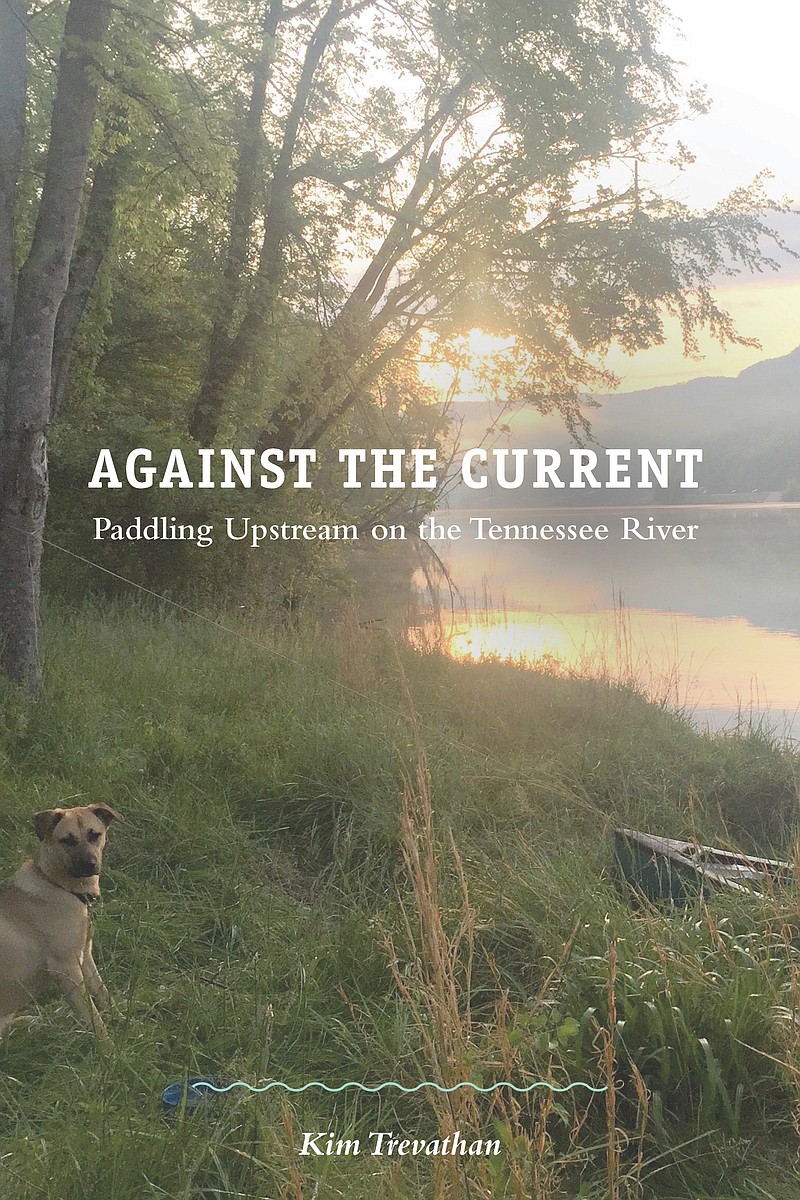"AGAINST THE CURRENT: PADDLING UPSTREAM ON THE TENNESSEE RIVER" by Kim Trevathan (University of Tennessee Press, 288 pages, $30).
There are plenty of reasons to go on seemingly absurd adventures. In "Against the Current: Paddling Upstream on the Tennessee River," Maryville College professor and nature writer Kim Trevathan makes the reasons for his quixotic quest clear from the start. "It may have been idiotic," he writes in the book's introduction, "but I was driven to go up the river because I was curious about a couple of things: how the river had changed in 20 years and how the passing of two decades had changed me."
Having paddled the entire length of the 652-mile river downstream 20 years earlier at age 40, a journey he chronicled in his 2001 book, "Paddling the Tennessee River: A Voyage on Easy Water," his mission at 60 is to go upstream from Paducah, Kentucky, to Knoxville, "the wrong way, if you will." Along for the ride this time - his dog Jasper joined him on the first trip - is a rambunctious, 65-pound, 10-month-old puppy named Maggie.
Things get off to a rough start when Trevathan and Maggie launch their 16-foot-long Old Town Discovery on the second day of spring in March 2018. It's cold and windy, and the river is crowded with barges and towboats.
"When I could keep the boat straight, water splashed over the bow as we dipped into the troughs," he writes. "When wind pushed us sideways, water splashed mainly on me, and Maggie was getting wet from my frantic paddling. I thought we were going over for sure when the boat got turned broadside to the wind. But we stayed upright, and I paddled against the wind, toward the east bank, on my left, hoping the land and the moored barges would block the gusts."
This makes for a nerve-racking opening to the book, but Trevathan clearly knows what he's doing, regardless of how many "Geezer updates" (as he calls them) he gives us or how many times we think he ought to have planned out his camping accommodations a bit better. The search for flat, dry public land or campgrounds that allow tent camping, together with anticipation of whether dam operators would lock him through while going upstream, provides much of the drama in the pages ahead.
In between the tense moments, Trevathan offers insight on the history of the river and the ways it has changed in 20 years. He doesn't recognize the West Tennessee town of Saltillo he recalls from two decades earlier, its ferry no longer operating, but as he paddles upstream past Savannah and Cherry Mansion, where Ulysses S. Grant stayed at the time of the Battle of Shiloh, he provides a passionate amateur historian's take on the role of the river in the bloodiest battle of the Civil War. "I thought if Maggie and I visited the battlefield about the same time of year that Grant did, during a chilly, soggy early April, that it would create a better sense of authenticity," Trevathan writes.
There's an undercurrent of frustration and longing in Trevathan's tone for the first half of the book. Much is not what it used to be. River trash is disheartening, and he doesn't seem to be making connections with river folk. Two speeding and oblivious cabin cruisers nearly capsize the canoe near Martin Landing. In some ways, he's a stranger on a river he thinks he knows so well.
But something happens to revitalize his spirits, give him a new purpose and take the reader into the second half. He's invited as a guest to a Tennessee Riverkeeper fundraiser at the Huntsville Botanical Garden, where Robert Kennedy Jr. provides a rousing keynote speech on the need to protect our waterways as part of "the commons." Trevathan goes instantly from a guest on the river to a shareholder of its assets.
"I was fired up after this speech, and also humbled that my adventure was part of something larger," he writes. "My crazy little trip was helping in some way to draw attention to the mission of the Riverkeeper as a watchdog for the Tennessee." The idea of the commons inspires him to see his journey as "a wayfaring experiment in democracy."
From there, it's full paddling- speed ahead toward Chattanooga and on to Knoxville, with plenty of characters for Trevathan to meet, campgrounds to explore, birds to photograph and changes to assess, both to the river and his own life.
For more local book coverage, visit Chapter16.org, an online publication of Humanities Tennessee.

